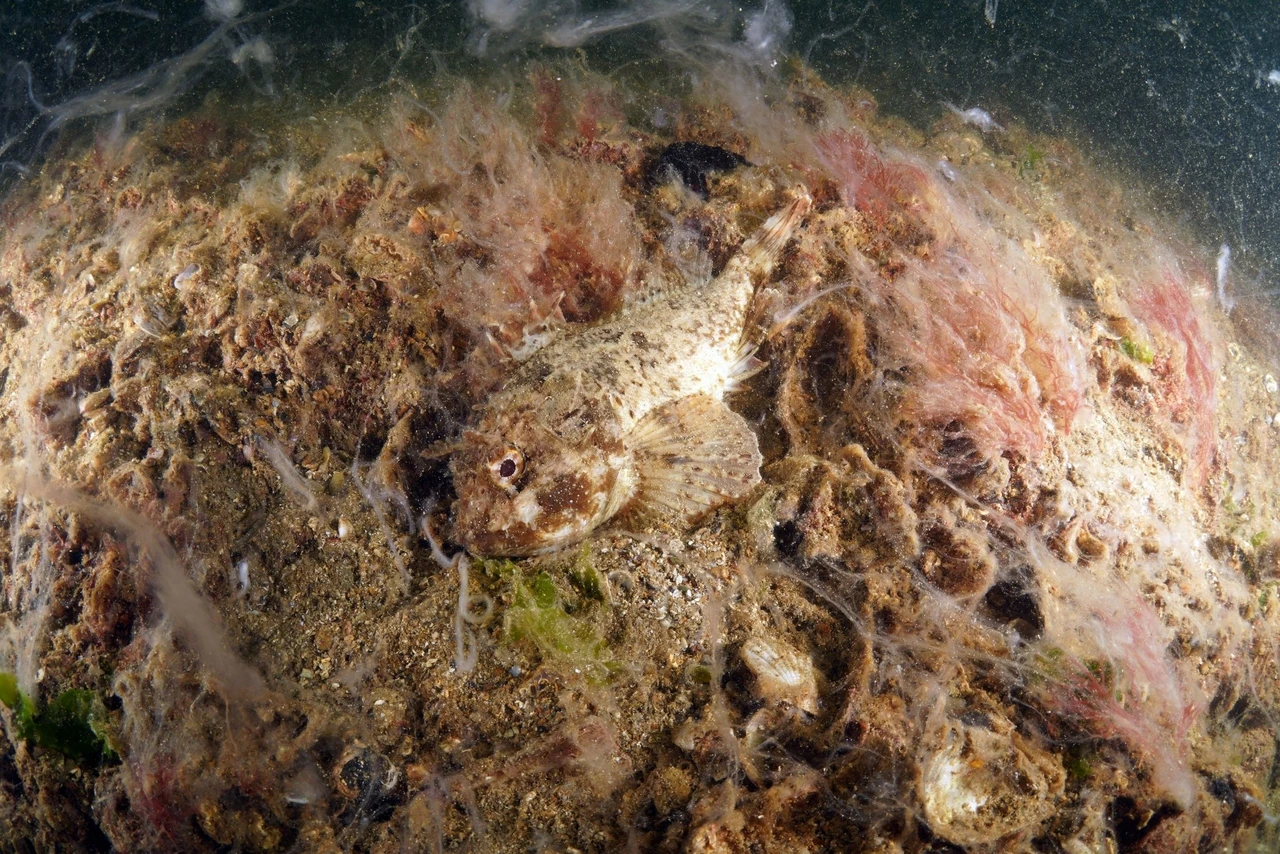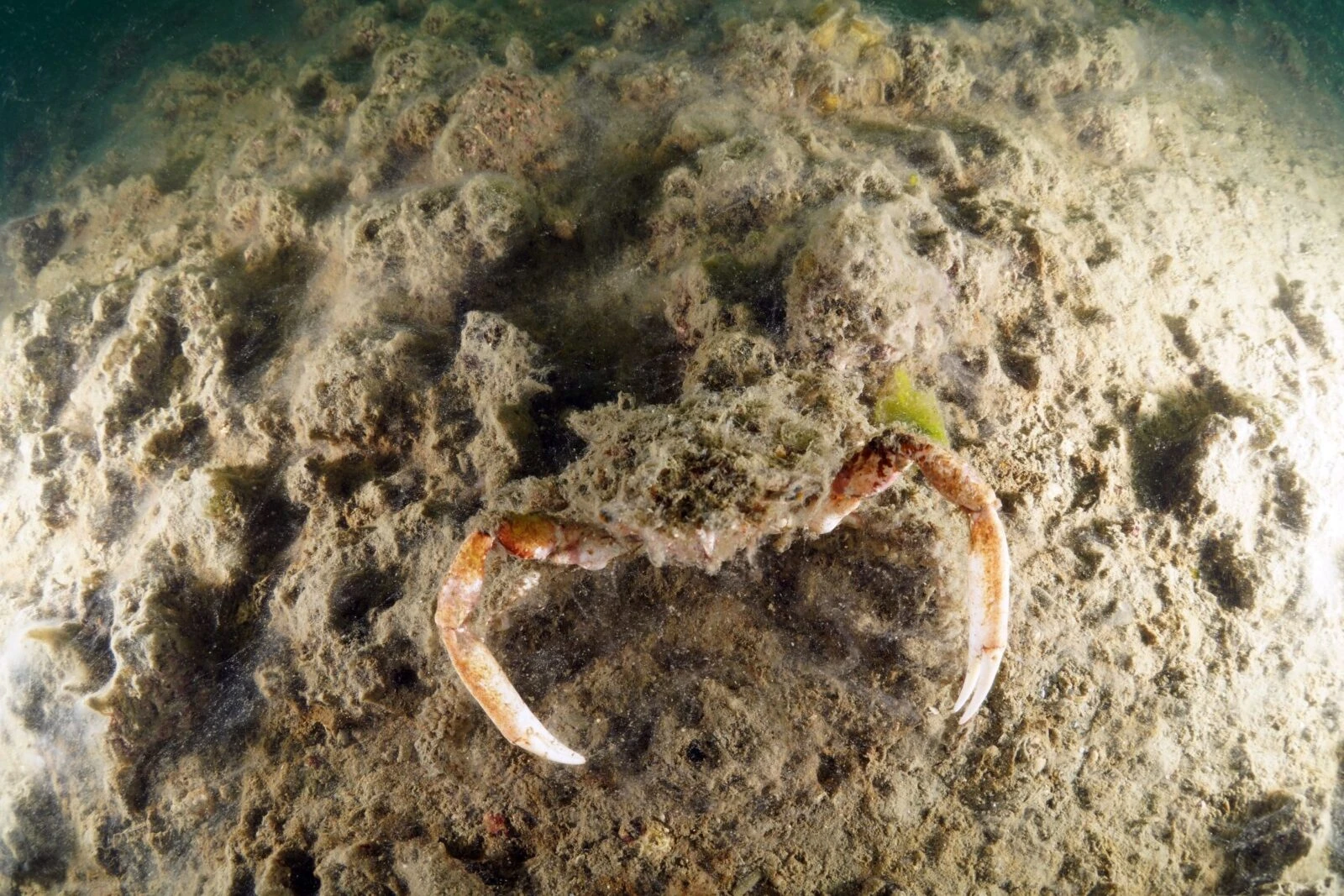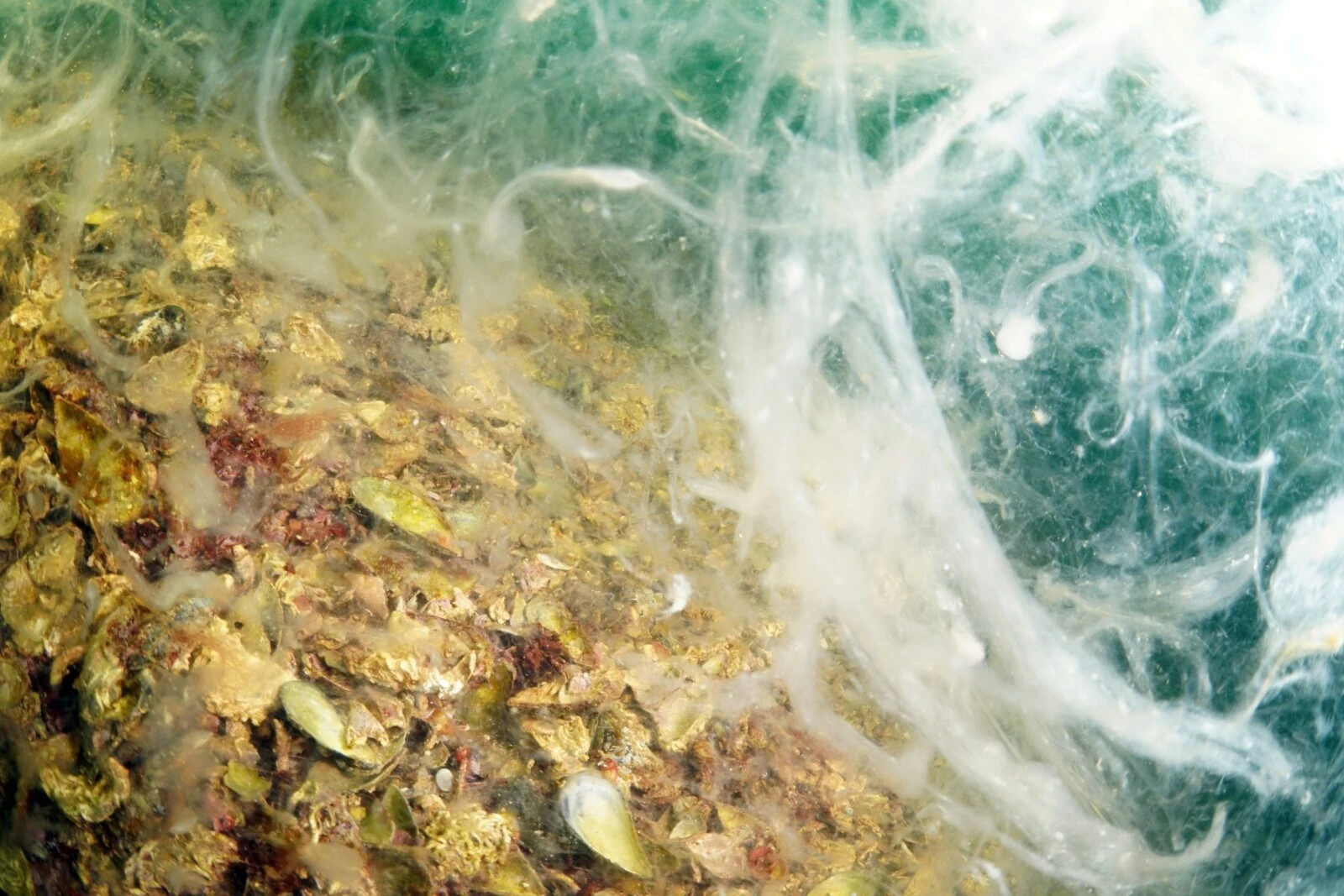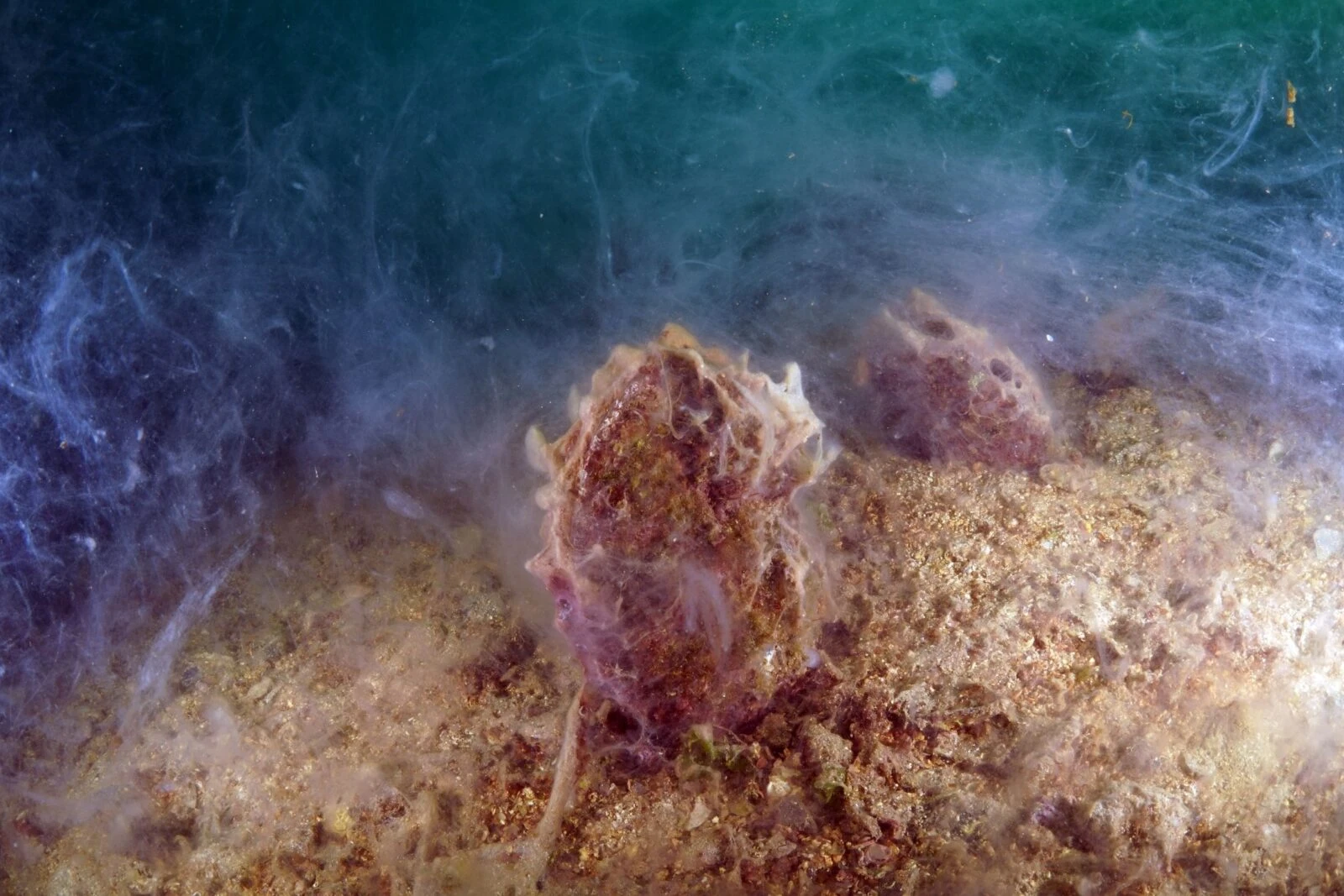Underwater footage shows devastating toll of mucilage on Türkiye’s marine ecosystem
 The impact of mucilage on the marine ecosystem in the depths of Buyukada and Sivriada, off the coast of Istanbul, is captured with an underwater camera in Istanbul, Türkiye, February 18, 2025. (AA Photo)
The impact of mucilage on the marine ecosystem in the depths of Buyukada and Sivriada, off the coast of Istanbul, is captured with an underwater camera in Istanbul, Türkiye, February 18, 2025. (AA Photo)
Underwater documentary filmmaker and cinematographer Tahsin Ceylan, accompanied by the Coast Guard Command Diving Safety, Security and Search and Rescue (DEGAK) teams, as well as diving instructors Ilker Acar and Mehmet Cenikli, conducted an extensive diving expedition. The team first explored Sivriada, the westernmost Princes’ Islands, before continuing their dive at Buyukada, the largest of the archipelago.
Using a specialized underwater camera, Ceylan captured alarming footage showing thick, web-like layers of mucilage covering marine life, including corals, sea urchins, sea lettuce, and various forms of seaweed. The mucilage appeared in varying densities, with some areas overwhelmed by the slime while others showed less accumulation.

Pollution and overfishing disrupting marine ecosystems
Speaking to Mersin University’s faculty of aquaculture Professor Deniz Ayas, we gained critical insights into the causes and consequences of this environmental disaster. Professor Ayas warned that pollution and overfishing are severely disrupting the balance of marine ecosystems.
“The impact of pollution goes beyond visible substances like plastics,” he explained. “Anthropogenic pollutants such as phosphorus, nitrogen, heavy metals, pesticides, and microplastics cause substantial damage to marine life.”
Professor Ayas highlighted that when nutrient-rich pollutants like phosphorus and nitrogen enter the sea, they fuel plankton growth, leading to an overproduction of biomass. If this biomass is not naturally controlled within the ecosystem, it can trigger disastrous events such as mucilage outbreaks and foam formation.

Overfishing worsening mucilage crisis
Beyond pollution, Türkiye is facing another serious challenge: the excessive and uncontrolled harvesting of marine organisms that could naturally help break down mucilage. Professor Ayas stressed that species like shrimp and crabs, which consume mucilage, are being overfished at an alarming rate.
“In addition to uncontrolled shrimp and crab fishing, the use of high-tech equipment is eradicating species that would naturally clean up mucilage once it settles on the seabed,” he said.

Advanced fishing technology pushing ecosystems to brink
Large industrial fishing fleets equipped with cutting-edge technology are catching thousands of tons of fish, further destabilizing marine ecosystems.
Addressing whether banning industrial fishing could solve the mucilage problem, Professor Ayas provided a thought-provoking response: “Mucilage is a natural phenomenon that occurs due to an excess of nutrient salts in the water, which plankton then convert into food. However, because overfishing has eliminated the species that would normally consume this food, the situation has spiraled out of control. If we allow the seas to recover, nature will find a way to restore balance.”
The alarming footage and expert analysis underscore the urgent need for stricter regulations on pollution and overfishing.



